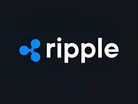Ripple: Driving Global Payments with Blockchain

Blockchain technology is gaining traction in the fintech industry, with cross-border payments emerging as a key application.
Ripple, a provider of digital asset infrastructure for financial institutions, explores Ripple Payments in its latest report, a blockchain-powered solution designed to address the challenges of international transactions.
The global payments landscape is evolving rapidly, with demand for instant cross-border services on the rise. However, many providers struggle to streamline their offerings due to the fragmented nature of the correspondent banking system.
Blockchain infrastructure for cross-border payments
Ripple Payments leverages blockchain technology to enable near real-time settlement of international transactions. The system is built on partnerships developed over a decade, allowing for reduced counterparties in the payment flow and potentially lower costs.
Brad Garlinghouse, CEO of Ripple, states: “Blockchain is gaining traction across myriad industries, but cross-border payments is the technology's killer use case. Businesses are eager for global payments that allow for instant settlement, and blockchain can make this a reality.”
The solution aims to provide 24/7 access to cross-border payments, including holidays and weekends. This continuous availability could be a significant differentiator in the financial services industry, where traditional banking hours often limit transaction times.
Ripple Payments utilises the XRP Ledger and its native digital asset, XRP, which was developed to facilitate fast, low-cost and scalable transactions. This infrastructure underpins the company's offerings across payments, custody, and stablecoin solutions.
Market expansion and competitive advantage
For fintech companies seeking to expand their global reach, establishing payment rails in foreign markets can be resource-intensive. Ripple Payments offers a single API integration, potentially reducing the time and capital required for market entry.
The system provides access to local payout rails in over 80 markets, with pre-negotiated rates for currency conversions. This feature could allow fintechs to offer competitive pricing to their customers while supporting their own bottom line.
Marcus Treacher, SVP of Customer Success at Ripple, explains: “With Ripple Payments, fintechs can connect to a global payments network and expand their market presence using a single API. This removes the burden of investing time, capital and other resources into managing and establishing accounts abroad.”
The solution also aims to unlock capital trapped in pre-funded bank accounts, potentially freeing up working capital for fintechs to invest in other areas of their business.
Impact on the fintech industry
The introduction of blockchain-based payment solutions could have significant implications for the fintech sector. A report cited in the document suggests that nearly 90% of financial institutions expect to lose at least 5% market share to fintechs in the next 5-10 years.
Ripple's solution aims to address several pain points in cross-border transactions, including high costs, lack of transparency, and slow settlement times.
By offering near real-time settlement and upfront visibility of fees, the system could meet growing consumer expectations for faster and cheaper international payments.
The product also features real-time updates on payment status, which could enhance the user experience for both fintechs and their customers.
A study by PYMNTS Intelligence, conducted from December 2023 to January 2024, found that 43.9% of receivers chose instant payments for better cash flow management. This suggests a growing market demand for the type of services Ripple Payments aims to provide.
Regulatory considerations
As with any financial technology, regulatory compliance is a crucial consideration. Ripple emphasises that its solution is designed to be compliant-forward, reflecting the company's experience working with regulators and policymakers globally.
The availability of Ripple's products and services varies by jurisdiction, indicating the complex regulatory landscape in which cross-border payment solutions operate. This variability underscores the importance of regulatory expertise in the fintech sector, particularly for companies operating across multiple markets.
David Schwartz, CTO of Ripple, comments: “We've built Ripple Payments on our decade-long cross-border payment expertise and robust network partnerships. Our goal is to provide a secure, compliant alternative to legacy payment rails that can streamline business growth and support fintechs' bottom line.”
**************
Make sure you check out the latest edition of FinTech Magazine and also sign up to our global conference series – FinTech LIVE 2024.
**************
FinTech Magazine is a BizClik brand.



